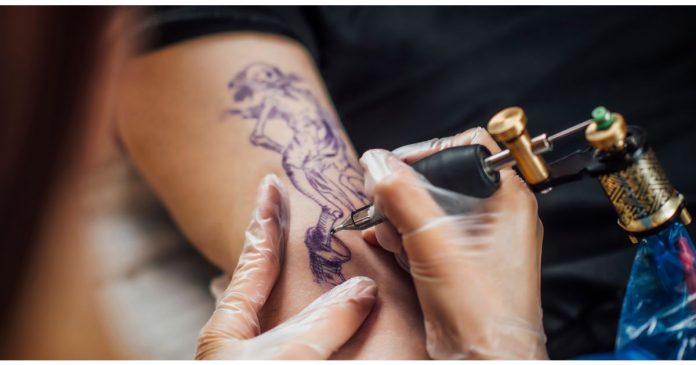Getting a tattoo is a personal and meaningful experience, but there are several important factors to consider before diving into the process. Tattoo pricing, budgeting, and etiquette play a significant role in ensuring that your experience is both enjoyable and hassle-free. If you’re planning to get inked, understanding these key elements will help you manage expectations, avoid surprises, and show respect for the artistry involved.
1. Understanding Tattoo Pricing
Tattoo prices can vary widely based on a number of factors. Here’s what influences the cost:
Artist Experience and Skill
The skill and reputation of the tattoo artist are among the most significant factors affecting the price. Highly skilled, well-established artists with a strong portfolio typically charge more for their work. If you’re going for intricate designs, detailed work, or custom pieces, you can expect to pay a premium for the expertise.
Design Size and Complexity
The size and complexity of your tattoo directly impact its price. A small, simple design may cost as little as $50 to $200, while larger, more detailed tattoos can run into the hundreds or even thousands of dollars. More complex tattoos that require multiple sessions or extensive shading tend to cost more.
Studio Location
The geographical location of the studio also affects pricing. Studios in major cities or high-demand areas usually have higher rates due to the cost of living and greater demand for tattoos. In smaller towns or less-populated areas, prices might be more affordable.
Hourly vs. Flat Rate
Tattoo artists can charge either by the hour or a flat rate for certain designs. Hourly rates typically range from $100 to $250, but this can vary depending on the artist’s reputation and the region. More complicated or larger pieces may be quoted as a flat rate for the entire job, allowing for more accurate budgeting.
2. Budgeting for Your Tattoo
Properly budgeting for a tattoo ensures that you’re financially prepared and helps avoid any surprises during the process. Here are a few tips for managing your tattoo budget:
Do Your Research
Before committing to a design, it’s important to research the average cost for tattoos in your area and for the type of work you’re interested in. Tattoo artists’ rates can vary, so it’s wise to compare prices. You can also ask for quotes from different studios to get a sense of the cost range.
Consult with the Artist
Once you’ve decided on the design, meet with the artist for a consultation. During this session, discuss the specifics of your tattoo, such as size, placement, and details, so the artist can provide an accurate quote. Be transparent about your budget during this discussion. Many artists can adjust designs or simplify them to fit your financial plans.
Factor in Aftercare
Aftercare is an essential part of the tattoo process, so don’t forget to include these costs in your budget. You’ll need specific ointments, soaps, and bandages to care for your tattoo while it heals. Some studios may sell aftercare products directly, while others may recommend what to buy from a pharmacy or online.
Tipping Your Artist
It’s common to tip your tattoo artist, typically between 10% and 20% of the total cost. Tipping is a great way to show appreciation for their work and professionalism. A good tip can also go a long way if you plan to return for future tattoos.
3. Tattoo Etiquette
Being mindful of proper tattoo etiquette ensures a smooth and respectful experience for both you and the artist. Here’s how to make sure you’re following the right protocol:
Arrive On Time
Tattoo appointments often run on tight schedules. Arriving late can throw off the artist’s entire day, especially if they have other clients lined up. Arriving on time also shows respect for the artist’s work and time.
Be Prepared and Clear About Your Design
It’s important to come to your consultation with a clear idea of the design you want. Bring references and discuss your vision with the artist. However, be open to suggestions. Experienced tattoo artists can offer helpful insights about what will work best on your skin, as some designs may need to be adjusted for size or placement.
Avoid Haggling
While tattoo prices can seem high, it’s important to remember that artists charge based on their skill, time, and the complexity of the design. Trying to haggle or negotiate a lower price is not advisable and may come off as disrespectful. If the cost is out of your budget, it’s okay to discuss alternative options or scale down your design.
Stay Focused and Respectful During the Session
Tattooing requires focus and precision. During your appointment, avoid distractions like constantly checking your phone or talking excessively. If you need a break, kindly ask your artist for one, but respect their time and the process.
Don’t Drink or Use Drugs Before Your Session
It’s best to avoid alcohol or drugs before getting a tattoo. They can thin your blood, which may lead to more bleeding during the tattoo process. Additionally, staying sober ensures that you make clear decisions about your design and placement.
Follow Aftercare Instructions
After the tattoo is finished, your artist will give you specific instructions on how to care for your new ink. Following these instructions carefully is crucial for healing, avoiding infections, and ensuring that your tattoo stays vibrant. Neglecting aftercare can lead to poor healing and may compromise the design’s quality over time.
Conclusion
When considering a tattoo, understanding pricing, budgeting, and etiquette can significantly enhance the experience. By researching costs, planning your budget, and respecting the artist’s time and expertise, you’ll ensure a smooth, enjoyable process from start to finish. Remember, a tattoo is an investment not only in your body art but also in the time, skills, and dedication of your artist. Approach the experience with thoughtfulness, and you’ll walk away with a meaningful piece of art that lasts a lifetime.



